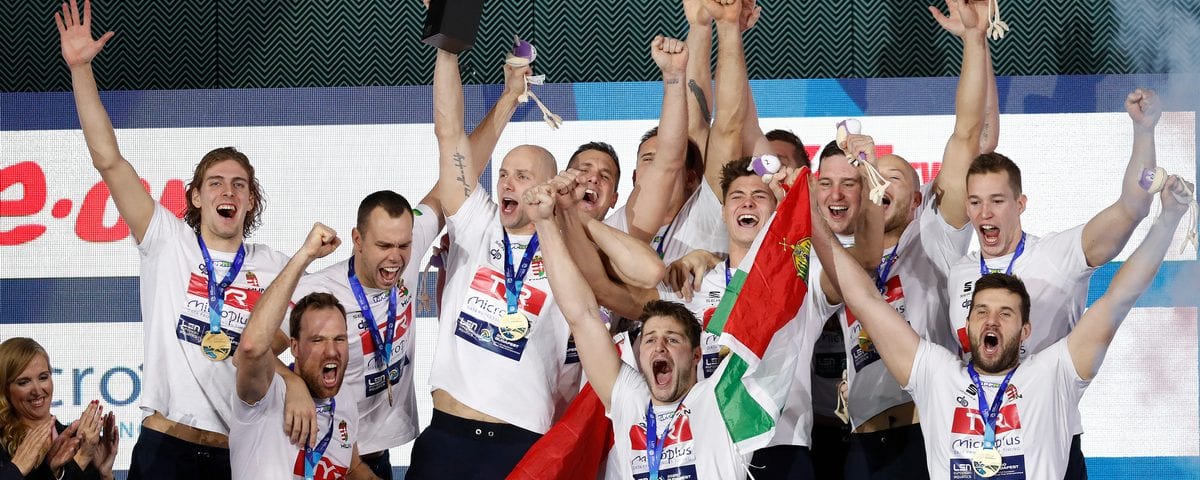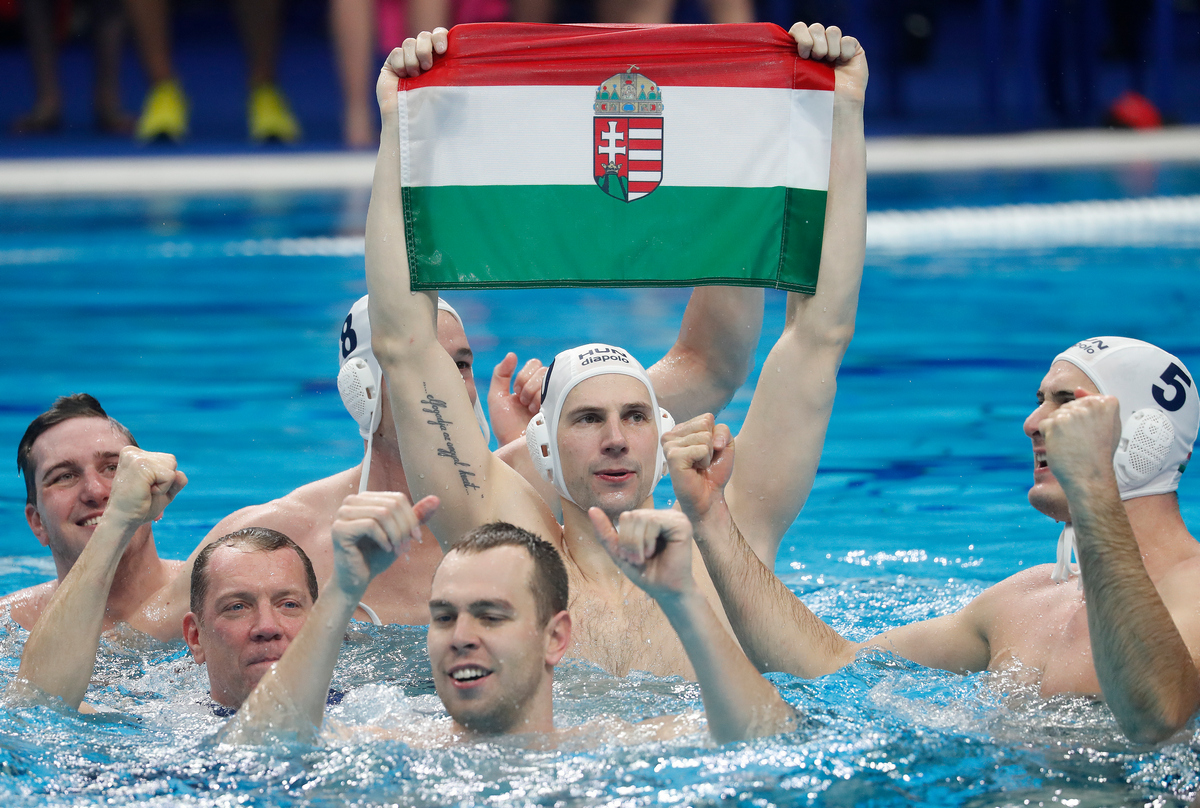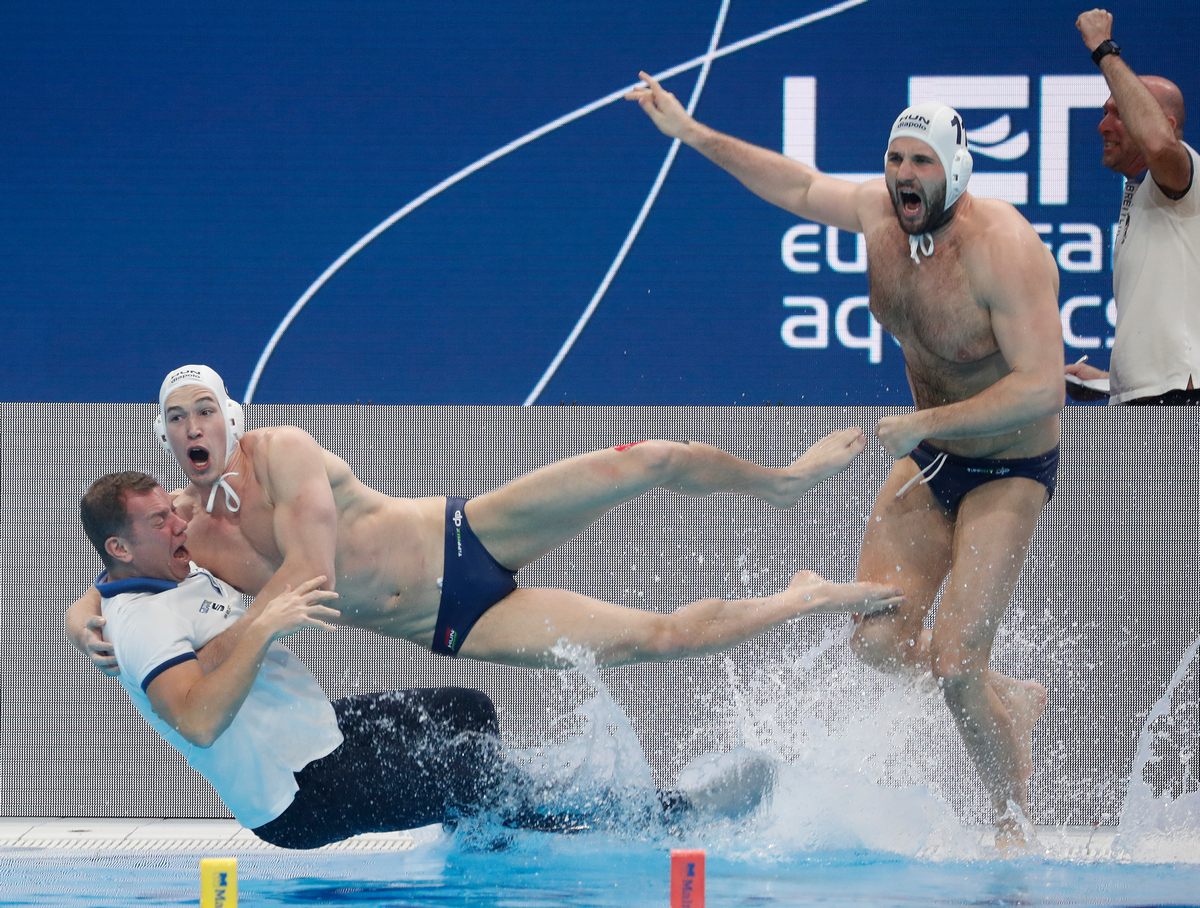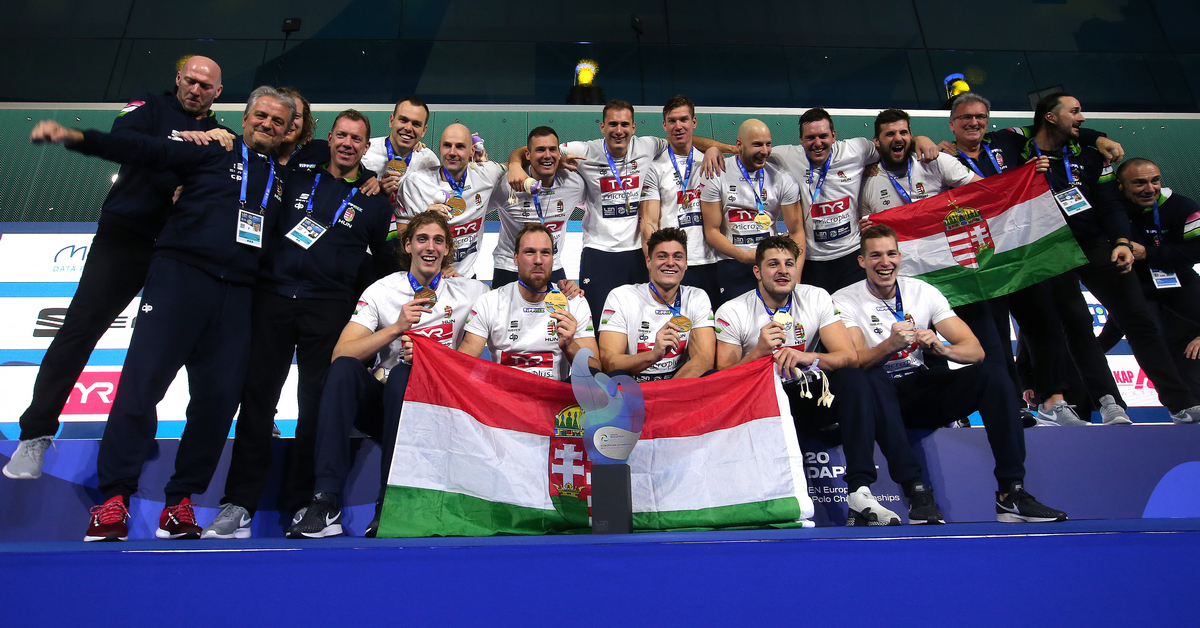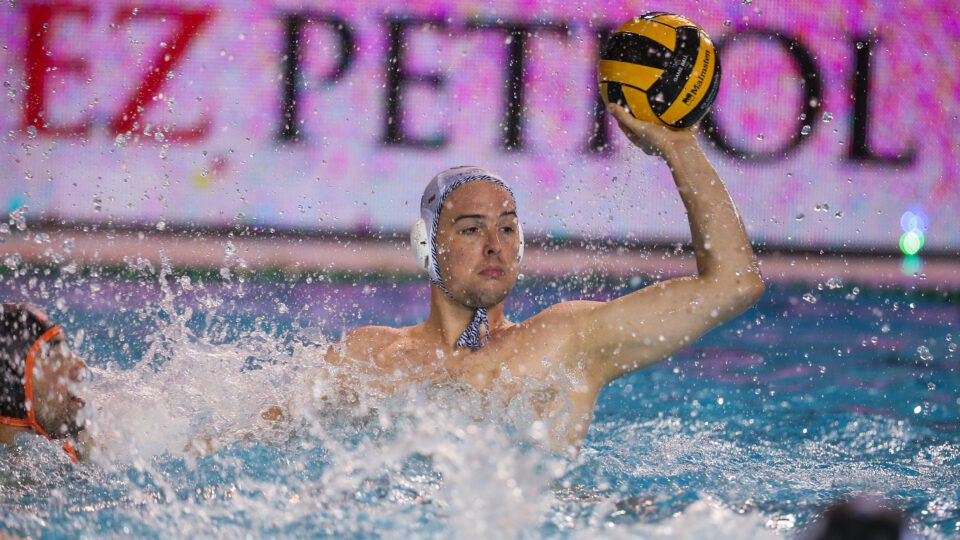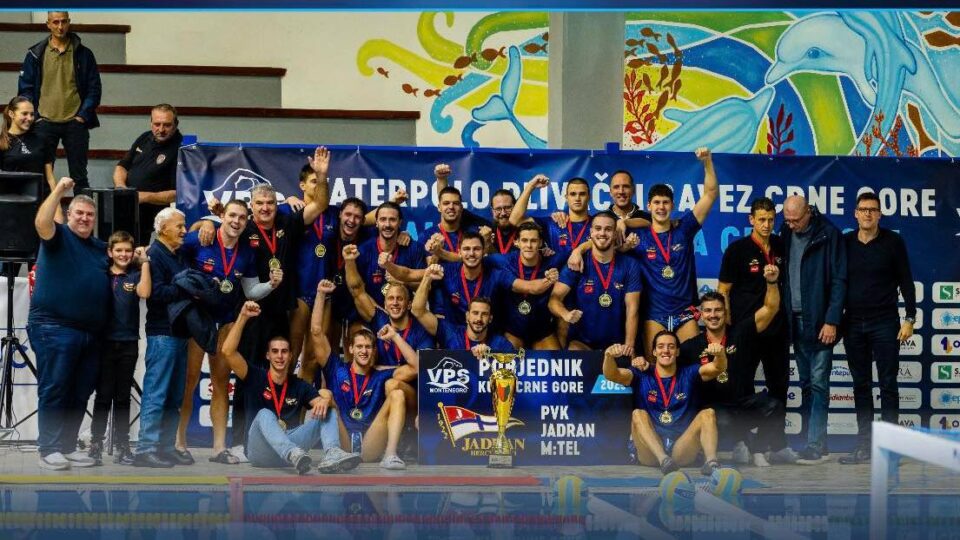The penalty shootout decided the gold-medal winner at the Europeans for the second time in history. The first final, which went to a shootout, was the previous one in Barcelona 2018. Two years ago, Serbia defeated Spain after penalties 12:10.
So, Spain didn’t manage to win its first European title. The Spaniards now have three silvers and three bronzes in their tally.
Hungary won its 13th European gold, but the first one after the 1999 Championships in Florence. Besides 13 golds, Hungary has six silver and six bronze medals.
The hosts of the 34th European championships halted their bad run in the big finals played in Budapest in the last 20 years. Six big competitions have been held in Budapest in the 21st century. Hungary won bronze at the 2001 European championships, while they lost in four final games at the next four major tournaments – 2006 World Cup ( they lost to Serbia and Montenegro) 2014 European championships (loss to Serbia), 2017 World Championships (loss to Croatia) and 2018 World League (loss to Montenegro).
Their previous title won on the home field was European gold in Budapest 1958.
Hungary’s captain Denes Varga (the winner of the 2019 Total Player Award) was voted the MVP of the tournament. Daniel Lopez (Spain) was the best goalkeeper, while Konstantin Kharkov (Russia) received the trophy for the best scorer (21 goals).
34th European Championships, men, Day 7
FINAL
Hungary – Spain 14:13 (1:3, 3:0, 2:2, 3:4, 5:4)
Hungary: Manhercz 2, Zalanki 2, Vamos 1, Varga 2, Harai 1, Angyal 1.
Spain: Munarriz 3, Mallarach 2, Granados 1, Larumbe 1, Tahull 1, Perrone 1.
Penalty shots – 1:0 Varga, 1:1 Perrone, 2:1 Vamos, 2:2 Munarriz, 3:2 Manhercz, 3:3 Delgado, 4:3 Hosnyanszky (Vogel replaced Nagy in front of Hungary’s goal), 4:4 Larumbe (Lorrio replaced Lopez in front of Spain’s goal), 5:4 Zalanki, 5:4 Granados – Vogel saved.
All the match’s and the players’ statistics: HUN -ESP
The final game was a tense battle between two strong teams. There were a few twists and turns. Hungary was leading for most of the time, but they never have more than a goal-advantage.
Spain got a better start and earned a 3:1 lead in the first quarter. But, the Hungarians, who were supported by 6.000 fans, started climbing back after the first break and turned around a deficit to a 4:3 lead, after Denes Varga scored from a man-up in the 15th minute.
Blai Mallarach leveled the score in the 17th minute – 4:4 and that was the start of a “tit for tat” battle. Hungary was taking a lead, but Spain replied with an equalizer on each occasion.
The hosts entered the last period with a 6:5 advantage. Spain’s leader Felipe Perrone finally hit the back of the net after four misses to level the score in the 26th minute. The sides were tied again, but not for long. In the next possession, Denes Varga converted a man-up for 7:6.
For the last time, Hungary went ahead in the 29th minute, when Balaz Harai scored with a backhander from the center. Munarriz leveled – 9:9 a minute and a half from the end.
Hungary lost the ball in their last attack. Mallarach stole the ball and tried to score from a counter-attack, but Nagy blocked his shot in the last second, and the match ended in a draw, just like an encounter between these two sides in the group stage (11:11).
Both goalkeepers Viktor Nagy and, especially, Dani Lopez were excellent today, and they were delivering one save after another. But, in the penalty shootout, Nagy and Lopez didn’t post a save. After the third series, Nagy was replaced by Soma Vogel, while before the fifth series Lorrio entered the pool instead of Lopez.
The winner was decided in the fifth series. After 9 goals, Vogel saved the shot from Spain’s Alvaro Granados and Hungary won the medal.
Spain had three draws here in Budapest. After 11:11 in the group against Hungary, they beat Serbia after the shootout in the quarterfinals (6:6 in regular time), and on the last day, they didn’t celebrate.
Bronze medal match: Montenegro clinches bronze after magnificent comeback
Games for classification 5th – 8th: Serbia win in clash of champions for 5th place
Final rankings
1.Hungary
2. Spain
3. Montenegro
4. Croatia
5. Serbia
6. Italy
7. Greece
8. Russia
9. Germany
10. Georgia
11. Romania
12. Turkey
13. France
14. Slovakia
15. Netherlands
16. Malta
All medal winners
1926 Budapest: Hungary, Sweden, Germany
1927 Bologna: Hungary, France, Belgium
1931 Paris: Hungary, Germany, Austria
1934 Magdeburg: Hungary, Germany, Belgium
1938 London: Hungary, Germany, Netherlands
1947 Monte Carlo: Italy, Sweden, Belgium
1950 Vienna: Netherlands, Sweden, Yugoslavia
1954 Torino: Hungary, Yugoslavia, Italy
1958 Budapest: Hungary, Yugoslavia, USSR
1962 Leipzig: Hungary, Yugoslavia and USSR (shared 2nd place)
1966 Utrecht: USSR, West Germany, Yugoslavia
1970 Barcelona: USSR, Hungary, Yugoslavia
1974 Vienna: Hungary, USSR, Yugoslavia
1977 Jonkoping: Hungary, Yugoslavia, Italy
1981 Split: West Germany, USSR, Hungary
1983 Roma: USSR, Hungary, Spain
1985 Sofia: USSR, Yugoslavia, West Germany
1987 Strasbourg: USSR, Yugoslavia, Italy
1989 Bonn: West Germany, Yugoslavia, Italy
1991 Athens: Yugoslavia, Spain, USSR
1993 Sheffield: Italy, Hungary, Spain
1995 Vienna: Italy, Hungary, Germany
1997 Sevilla: Hungary, Yugoslavia, Russia
1999 Florence: Hungary, Croatia, Italy
2001 Budapest: Yugoslavia, Italy, Hungary
2003 Kranj: Serbia & Montenegro, Croatia, Hungary
2006 Belgrade: Serbia, Hungary, Spain
2008 Malaga: Montenegro, Serbia, Hungary
2010 Zagreb: Croatia, Italy, Serbia
2012 Eindhoven: Serbia, Montenegro, Hungary
2014 Budapest: Serbia, Hungary, Italy
2016 Belgrade: Serbia, Montenegro, Hungary
2018 Barcelona: Serbia, Spain, Croatia
2020 Budapest: Hungary, Spain, Montenegro
Total Coverage

For more information about the 34th European Championships visit our tournament page
Links for all results and statistics:



